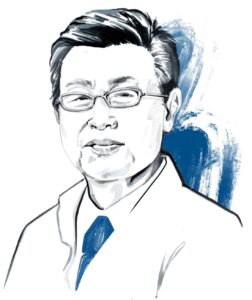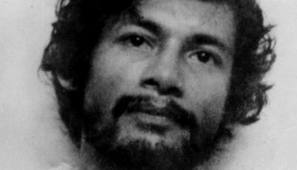
I recently interviewed Dr. Preecha Tiewtranon, the first surgeon to perform gender reassignment surgery in Thailand in 1975 for Roadbook.
A 1965 graduate of Chulalongkorn University, Tiewtranon had studied surgery in the US for eight years. When he returned to work at the renowned Thai university’s plastic surgery unit, he was shocked to see countless transgender patients who had been mutilated by unqualified doctors. He developed his own surgical procedure and has since changed the lives of thousands of patients.
“When I first started off at Chulalongkorn University as a surgeon, I did many corrective surgeries. These are very difficult to perform because of the lack of available tissue. I sat down with the psychiatry department. They told me that they saw a lot of patients who were ready for the operation, but that they couldn’t refer them to a surgeon.”
In 1970s Thailand, transgenders were not well understood.
“Statistics tell us that one out of 30.000 men want to be women, and one out of 100.000 women want to be men. That’s the same the world over. At first, Thai society considered them as psychopaths, as dirty, hiding in the dark to grab the men. They worked as prostitutes. People generally looked down on trans. But after I started operating, that image gradually changed. In the early days, my patients were often working class – beauticians and dress makers. Nowadays, I operate fellow doctors, bankers and engineers. On a family level too, things are easier now. These days, parents take their children for advice on hormones. If you take the hormone early, the transition will be more feminine.”
The first international clients showed up in the early 1980s.
“Communication was a major challenge. At first Scandinavians, Germans, Italians and Spaniards would get in touch, usually by fax. American clients also made inquiries. There were only ten or so well qualified surgeons in the world who could perform modern sex reassignment surgery safely. The US and Serbia produced brilliant doctors. Here in Thailand, most of the surgeons were my students.”
Dr. Preecha and his colleagues set up associations who meet regularly around the world to exchange information on surgical procedures. He is the director of the largest such organization in Asia – Asia PATH (https://www.asiapath.org/), which was established to explore and document the best practices leading to health-for-all for Asia’s transgender and gender diverse people, taking local barriers and policies across the region into consideration.
“Psychiatrists, social workers, endocrinologists and surgeons get together to find solutions to the challenges a transgender client is likely to face.”
By the early 2000s, Dr. Preecha began to connect with patients from the Middle East.
“I remember my first Iranian patient very well. She asked her local Ayatollah what to do. She told him that God had given her the wrong body which made her confused. The Ayatollah told her that if she was confused, she would not be able to serve God and it was best to go see a doctor and change. It’s not that easy for the Saudis. They leave home dressed as a man. They arrive in Bangkok dressed as a woman. When they go home, they dress like a man again. Even as they can’t live as transgender people in public, they’re happy. The part of their body which they so disliked is gone.”
As more and more surgeons are trained for SRS and meet in conferences, techniques have notably improved.
“Doctors have to be able to separate the urethra, prostrate and bladder from the rectum and go deep into the peritonium, the membrane that prevents the intestines to come out, to create a vagina. It is very difficult to correct this procedure if something goes wrong. Nowadays we make modifications with bits of intestines, rather than with skin grafts. We use a scope to deliver the intestine into the cavity, so that patients don’t scar on their bellies. The intestine also has the advantage of lubrication and elasticity. We have really refined out techniques to offer more sensation, better shape and better outside appearance.”
Today, Dr. Preecha, who heads PAI, Bangkok’s premier private aesthetic plastic surgery center, is a legend in a continuously growing industry.
“In 1978, I set up a course at Chulalongkorn that is running to this day. Back then, I worked five or six days a week, one operation a day. Now there are about twenty specialists in Thailand. The procedure has become much more accessible.”
Sex reassignment surgery is affordable in Thailand.
“Thai people can either go to a public hospital like Chulalongkorn and pay no more than 50.000 Baht. At a private clinic with senior surgeons, the surgery will cost 100.000 to 150.000 Baht. Foreigners pay around 9.000US$. It’s a growth industry – we currently get more and more patients from India, Indonesia and China.”
Dr. Preecha is proud of his trailblazing work.
“I have changed the lives of many people for the better. My work has alerted politicians to the fact that transgender people are here to stay. Fifteen years ago, a Japanese doctor removed a patient’s testicles and was sent to jail. Now Japan has its own SRS surgeons. China is finally getting up to speed as well, legalizing the procedure and training specialists. I am very happy more and more governments and organizations understand the situation of transgender people in legal, social and healthcare terms. There is greater acceptance.”

